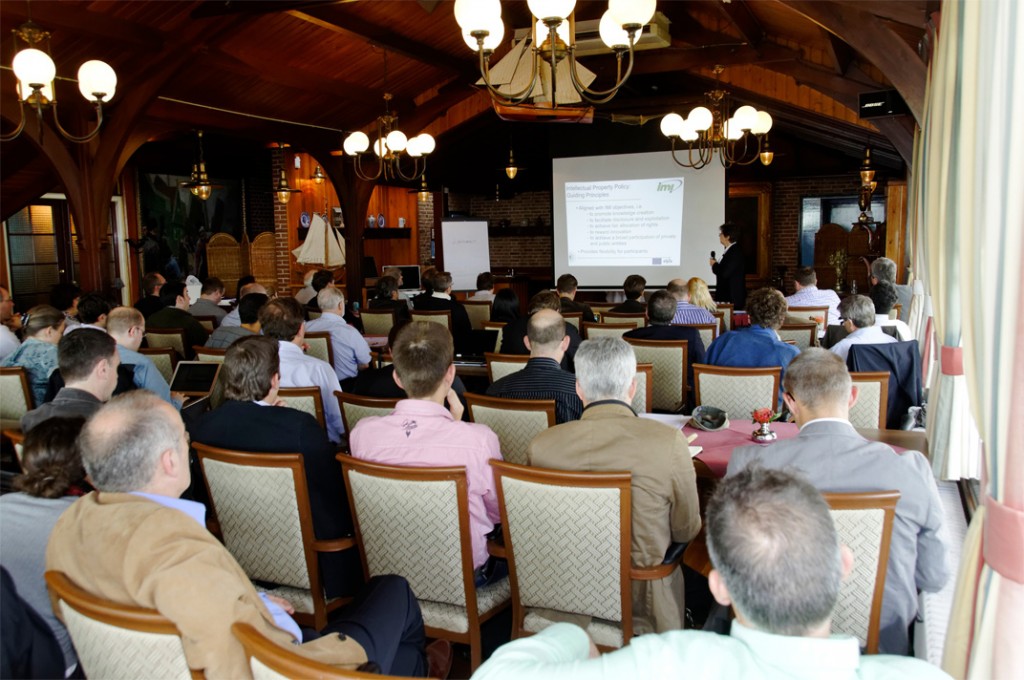
1st Open PHACTS Community Workshop
Solving Bottlenecks in Data Sharing in the Life Sciences (Volendam, the Netherlands)
Co-hosted with GEN2PHEN as a project addressing similar issues around data sharing
The Open PHACTS / GEN2PHEN workshop aimed to explore two directly related topics: data sharing (pushing data outwards from its source to one or other online resources) and data access (pulling data from one or other online resources for additional use).
The goal was to maximally enable and promote ‘open’ data sharing, i.e., precompetitive, unencumbered, unrestricted, universally equitable dissemination of datasets generated by academia and (to a certain degree) by industry. Therefore, the focus was restricted to datasets that are ethico-legally ‘safe’ to share, or can be made safe to share by some pre-processing, aggregation, anonymisation or via advanced data access methods designed to protect the data. It is accepted that certain other datasets will not be possible to share in any kind of ‘open’ fashion.
The hashtag #datasharing11 was used to Tweet about the workshop, and the workshop’s outcomes were published in the journal Human Mutation.
Photo by Rob Hooft – see all workshop photos
Presentations
PubChem data issues: Chemistry, bioactivities, etc. (Evan Bolton, National Library of Medicine)
PubChem contains a huge amount of information about chemical structures and biological resources. What are the issues with this data?
Data Sharing Issues: SME Data Owner Perspective (Frank Schacherer, BIOBASE GmbH)
BIOBASE’s mission is to create the best biological databases. Data should be free, but it is expensive to create databases – here are three ways of funding them.
Licensing Concerns within Open PHACTS (Christine Chichester, SIB)
While building the Open PHACTS system the question of legal concerns and licences arose: How do these affect making the system, using the system, working on industry/academic access, redistribution of data, and connecting with reusable software components of third parties? One option is to come up with a licence for the providers.
Innovative Medicines Initiative (Ann Martin, IMI)
The IMI joint undertaking is a funding pot of the European Commission containing two billion euros, half from the EU and half from EFPIA. Right now there are 23 ongoing projects.
No Free Lunch (Jan Velterop, AQnowledge)
Sustainability in the new world order of publishing nanopublications: some ways to potentially create additional resources from services.
Towards an Internet ‘Knowledge Environment’ for G2P Information (Anthony Brookes, GEN2PHEN)
An overview of the data sharing issues GEN2PHEN is facing, and possible solutions, including openly sharing the ‘existence’ rather than the ‘substance’ of data and thereafter variably managing data access.
Open Source Licensing and Sustainability Models for Effective Data Sharing in the Life Sciences (John Wilbanks, Science Commons)
At the moment there are not really any existing licensing models that would cover all issues raised by this innovative way of data sharing and data stewardship. Inventing a new paradigm requires setting rules and describing procedures, and documenting them in a stack that would then govern the process going forward.
Resources
Publication of Workshop Outcomes
Workshop Photos (by Rob Hooft)
